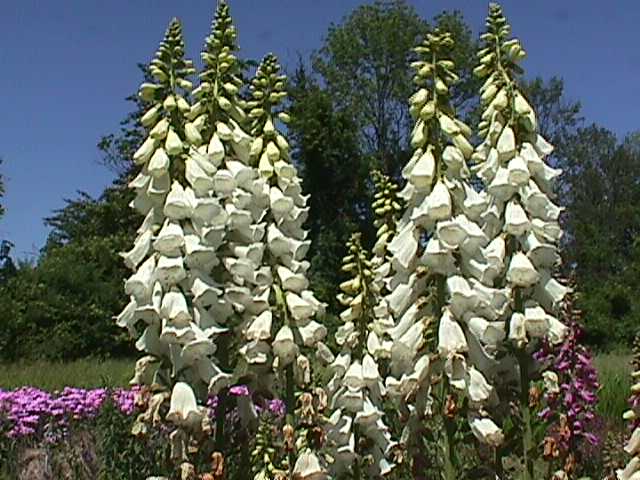| Botanical Name: Digitalis grandiflora | |
| Common Name: Yellow Foxglove |

-
Anatomy
-
Culture
-
Design
Plant Type
Perennial, Annual, Biennial
Height Range
1-3'
Flower Color
Yellow
Flower Season
Spring
Leaf Color
Green
Bark Color
n/a
Fruit Color
n/a
Fruit Season
n/a
Sun
Full, Half
Water
Medium
Growth Rate
Moderate
Soil Type
Sandy, Loam
Soil Condition
Rich, Well-drained
Soil pH
Neutral
Adverse Factors
n/a
Design Styles
English Cottage, Meadow
Accenting Features
Showy Flowers
Seasonal Interest
Spring
Location Uses
Entry, Perennial Border, Patio
Special Uses
n/a
Attracts Wildlife
Birds
Information by: Stephanie Duer
Photographer: Linda Engstrom
Photographer: Linda Engstrom
-
Description
-
Notes
Foxglove is a clump-forming biennial with tall spikes of tubular flowers blooming May and June. Plants grow about 2 to 3 feel tall and half as wide. The foliage grows in a clump at the base and is a soft green.
Foxglove need rich, amended soil that is very well draining. Wet soils are its death. Prefers part sun, with shade being provided during the hottest part of the day. Deadheading can encourage new flowering, though leaving flowers to go to seed may invite new plants for the following season. The basal foliage is practically evergreen, though it does get very tatty over winter and the worst leaves should be cut away as new growth comes on in the spring. Leaves are toxic if ingested. Though biennial, we've included this plant in the annuals listing as it is frequently used that way.